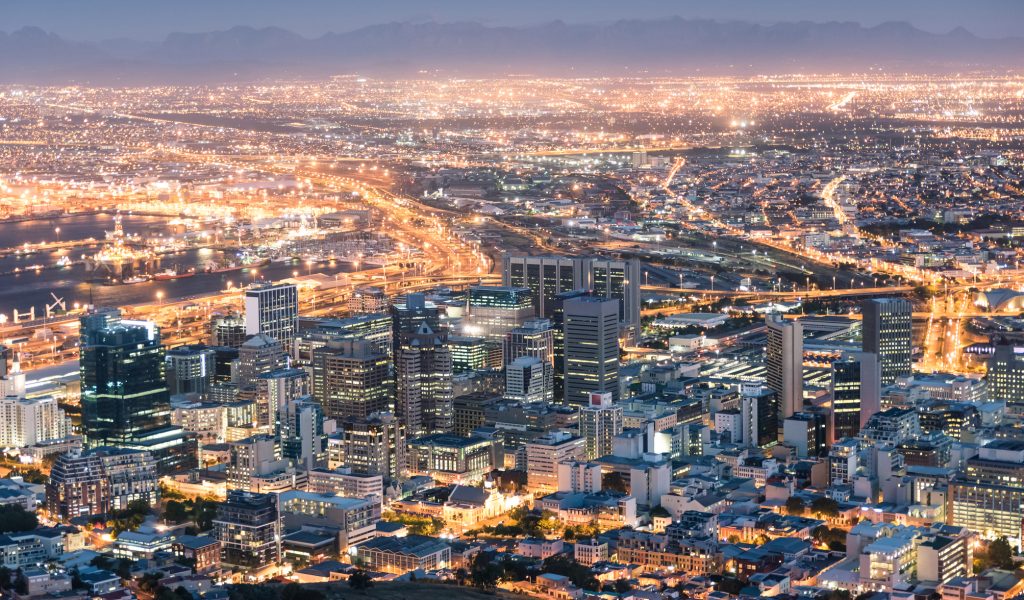Cape Town’s inner city pulled in over R3.5 billion in property investment in 2022, marking a strong post-pandemic recovery – with the construction, retail, hospitality and eventing industries attracting much of the attention.
This is according to the 11th edition of the State of Cape Town Central City Report for 2022 released by the Cape Town Central City Improvement District (CCID) on Monday.
Read: Milestone for Cape Town’s R16bn Harbour Arch mega-development
According to the insights, Cape Town’s central business district (CBD) registered a total of 22 property development or redevelopments in 2022.
Four developments worth over R170 million were completed, another 12 valued at over R3.085 billion were under construction, five properties worth R300 million were in the planning phase, and one project was registered as a proposal at the time of compiling the data.
With the assistance of these developments, the CBD grew its property valuations to R42.9 billion, up from R12.2 billion recorded in the 2016/17 period.
For CCID board chair Rob Kane, the latest investment data indicates that 2022 was a year of regeneration for the city as well as the moment the city rebounded from the brutal impacts of the pandemic.
“It’s clear from the results of the report that the Cape Town CBD has put Covid firmly behind it and is experiencing regrowth and stability,” Kane said in a statement.
“With the construction sector regaining its pre-Covid momentum, and the total value of property investment in the Cape Town Central City to be conservatively estimated at R3.555 billion, it bodes well for further growth and investment in the economic hub of the Mother City.”
Residential
The city’s housing market generated much of the investment activity this time around, with residential developments attracting eight of the 22 projects in the city, promising to add thousands of new units to the area.
In the CBD, the R75 million Neighbourgood Reserve was completed in 2022, while another four developments – including The Tokyo and The Fynbos, which hold a combined value of R1.48 billion – were under construction.
According to the data, the median price of sectional titles sold in the central city dropped by 13.8% to R1.47 million in 2022 compared to R1.71 million in 2021, showing evidence of the impact rising interest rates had on buying appetite at the time.
A total of 648 residential units were sold in 2022, 102 fewer than in 2021.
Retail strength
The retail sector continues to have a stronghold on the region’s economy, accounting for almost half of the businesses operating in the inner city.
According to CCID figures, retail operations accounted for 1 243 of the 3 116 businesses operating in Cape Town’s CBD in 2022, increasing their dominance with 80 new retail outlet openings that year.
The Health and Beauty as well as Coffee shops and Cafés sectors led the growth in retail in 2022, opening 16 new outlets each. They were followed by the Takeaways and Speciality stores sectors, which opened seven new outlets each, and the Bars and Clubs and Art galleries segments, which opened six new outlets each.
Read:
Top landlords ditching Gauteng for Western Cape where ‘returns are better’
‘Best December ever’ for Mall of Africa, Sandton City and V&A Waterfront
Northern Cape threatens to take over as most expensive residential rental market
Retail occupancy was reportedly 5.6% stronger in 2022 than in the previous year as the total retail space occupied across the city’s four precincts grew by 13 731m2 to 258 024m2 of the total available space of 271 209m2.
This means that vacancy in the retail segment of the inner city’s property space came in just under 5%, with only 13 185m2 of the space going unclaimed in the year under review.
“In 2022 there was a steady improvement in the total retail vacancy rate as footfall returned to town and new retailers opened their doors,” Kane said.
Listen to Rob Kane of the CCID speaking on The Property Pod about development activity in Cape Town’s CBD (0r read the transcript):
You can also listen to this podcast on iono.fm here.

